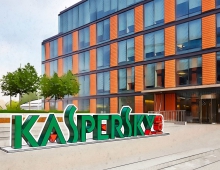
Kaspersky Develops Secure OS For Industrial Control
Security firm Kaspersky Lab is developing a secure operating system for industrial control systems, its chairman and CEO Eugene Kaspersky said on Tuesday.
"We?re developing a secure operating system for protecting key information systems (industrial control systems (ICS)) used in industry/infrastructure," Kaspersky chairman and CEO Eugene Kaspersky said on Tuesday.
The basic priority in running industrial systems so far has been to maintain operation under any circumstances and not to secure the systems, Kaspersky said. Most automated control systems were not created with security in mind, which is the reason for example that most protocols used for the exchange of information used in SCADA (Supervisory Control and Data Acquisition) and PLCs (Programmable Logic Controllers) don't require any user identification or authorization, according to a separate analysis by Kaspersky Lab.
The new operating system aims to protect complex industrial systems that have become the target of a variety of high-profile cyberweapons such as Stuxnet, Duqu, Flame and Gauss.
The operating system, one onto which ICS can be installed, will be built into the existing infrastructure - controlling "healthy" existing systems and guaranteeing the receipt of reliable data reports on the systems? operation.
Kaspersky says the system is highly tailored, developed for solving a specific narrow task, and not intended for playing Half-Life on. By design, the OS won't be able to carry out any behind-the-scenes, undeclared activity, meaning that it will not be possible to execute third-party code, or for anyone to break into the system or run unauthorized applications.
"We can't reveal many details of the project now because of the confidentiality of such cooperation. And we don't want to talk about some stuff so competitors won't jump on our ideas and nick the know-how." Eugene Kaspersky added.
The basic priority in running industrial systems so far has been to maintain operation under any circumstances and not to secure the systems, Kaspersky said. Most automated control systems were not created with security in mind, which is the reason for example that most protocols used for the exchange of information used in SCADA (Supervisory Control and Data Acquisition) and PLCs (Programmable Logic Controllers) don't require any user identification or authorization, according to a separate analysis by Kaspersky Lab.
The new operating system aims to protect complex industrial systems that have become the target of a variety of high-profile cyberweapons such as Stuxnet, Duqu, Flame and Gauss.
The operating system, one onto which ICS can be installed, will be built into the existing infrastructure - controlling "healthy" existing systems and guaranteeing the receipt of reliable data reports on the systems? operation.
Kaspersky says the system is highly tailored, developed for solving a specific narrow task, and not intended for playing Half-Life on. By design, the OS won't be able to carry out any behind-the-scenes, undeclared activity, meaning that it will not be possible to execute third-party code, or for anyone to break into the system or run unauthorized applications.
"We can't reveal many details of the project now because of the confidentiality of such cooperation. And we don't want to talk about some stuff so competitors won't jump on our ideas and nick the know-how." Eugene Kaspersky added.





















